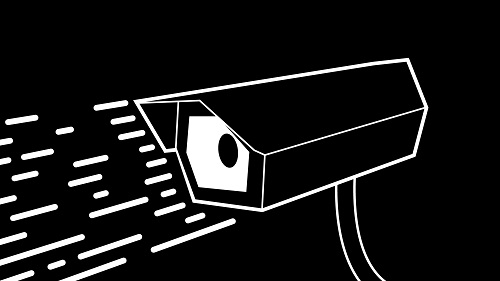
2.11.22 – SIW
Two years after a landmark decision on video surveillance, appellate court affirms in a new case
This article originally appeared in the February 2022 issue of Security Business magazine. When sharing, don’t forget to mention Security Business magazine on LinkedIn and @SecBusinessMag on Twitter.
In my August 2020 column, I posed an important societal question: Do you have a reasonable expectation of privacy inside your home, but no such reasonable expectation immediately outside your home?
That column, Surveillance and the Fourth Amendment(www.securityinfowatch.com/21146837), suggested that you may not have a reasonable expectation of privacy immediately outside your home, depending on the circumstances. I analyzed United States v. Moore-Bush, where the Court of Appeals for the First Circuit (one step below the U.S. Supreme Court) considered whether the government’s warrantless use of a pole camera to continuously record the front of the defendants’ home for eight months infringed on the defendants’ reasonable expectation of privacy and, thereby, violated the Fourth Amendment of the U.S. Constitution.
Ultimately, the court determined that the warrantless use of the camera was permissible and not a violation of the defendants’ Fourth Amendment rights.
While I value privacy and recognize the intricacies of the case, I did not shed a tear for the drug dealers in that case.
History Repeats Itself
A couple years later, another drug dealer seems to have suffered the same fate – this time in front of the Court of Appeals for the Seventh Circuit (also one step below the U.S. Supreme Court).
In United States v. Tuggle, the Courtfound that police did not need a warrant to secretly record all activity in front of a drug trafficking suspect’s home 24 hours a day for 18 months (10 more months than in the Moore-Bush case). In Tuggle, the police mounted three cameras on utility poles on public property to secretly record Travis Tuggle’s home. This surveillance enabled the police to track when Tuggle was home, who visited him and when, what packages he received, and a variety of other details about his life.
Tuggle (and various private interest groups supporting his appeal) argue that the Fourth Amendment to the U.S. Constitution protects people against lengthy, intrusive, always-on video recording – especially when that video records all activity outside their homes.
Modern video cameras make it easy for the government to collect massive amounts of information about someone’s private life. The cameras are small, inexpensive, easily hidden, and are capable of recording in the dark and zooming in to record small details. Tuggle argues that our homes are our most private spaces, and police should not be permitted to record everything that happens at a home without prior court authorization – even where, as in the Tuggle case, the cameras were positioned on public property and not on the property of the suspect. Just like the court in the Moore-Bush case, the court in the Tuggle case held that the government’s use of a technology in a public space, while occupying a place it was lawfully entitled to be, to observe plainly visible happenings, did not run afoul of the Fourth Amendment.
The Caveat
The Court also noted that the result may be different in future cases, as technological capabilities advance.
After all, the determination of whether someone’s constitutional rights were violated is a fact-dependent exercise. The facts in the Moore-Bush and Tuggle cases were strikingly similar – involving drug dealers recorded immediately outside their homes by cameras placed on utility poles on public property. The next case may be very similar – but may involve more powerful and more invasive technology. If so, the result could change.
It remains to be seen if the U.S. Supreme Court will take up Tuggle’s appeal. I suspect that they either will not consider the appeal or will hear it and affirm the Circuit Court’s decision. That is bad news for drug dealers and privacy advocates, but good news for police and for those in the security industry who make and install the powerful cameras used by law enforcement to protect us from crime.
Timothy J. Pastore, Esq., is a Partner in the New York office of Montgomery McCracken Walker & Rhoads LLP (www.mmwr.com), where he is Vice-Chair of the Litigation Department. Before entering private practice, Mr. Pastore was an officer and Judge Advocate General (JAG) in the U.S. Air Force and a Special Assistant U.S. Attorney with the U.S. Department of Justice. Reach him at (212) 551-7707 or by e-mail at tpastore@mmwr.com.
